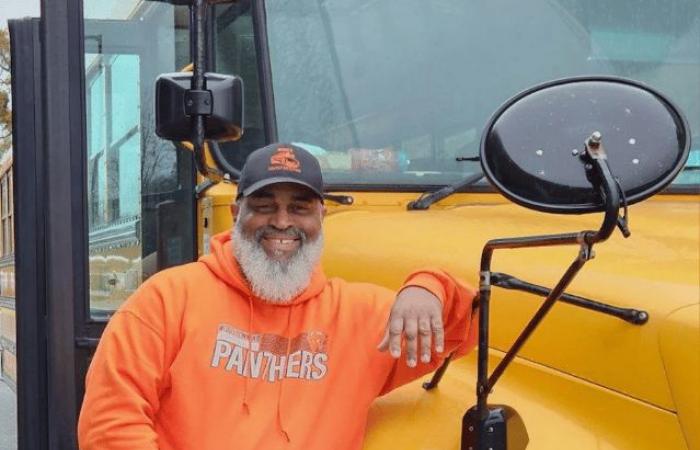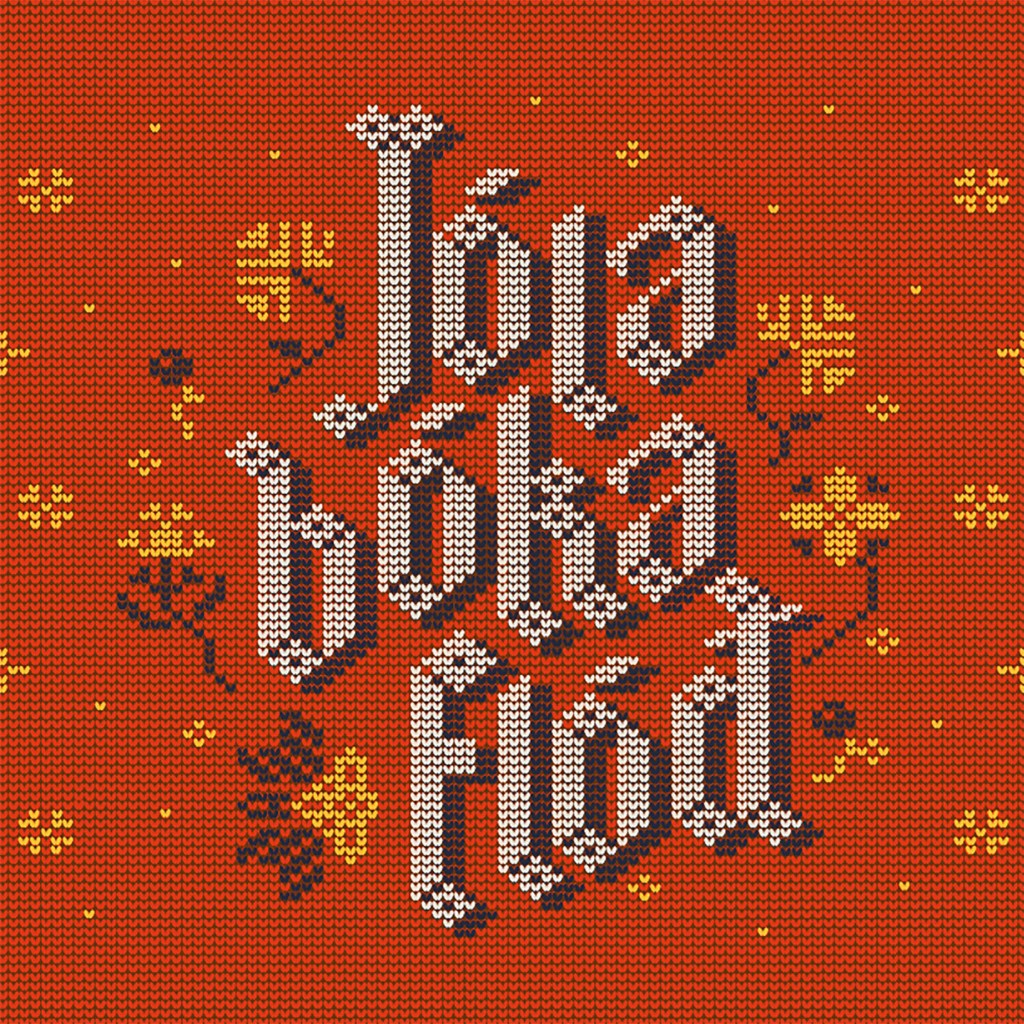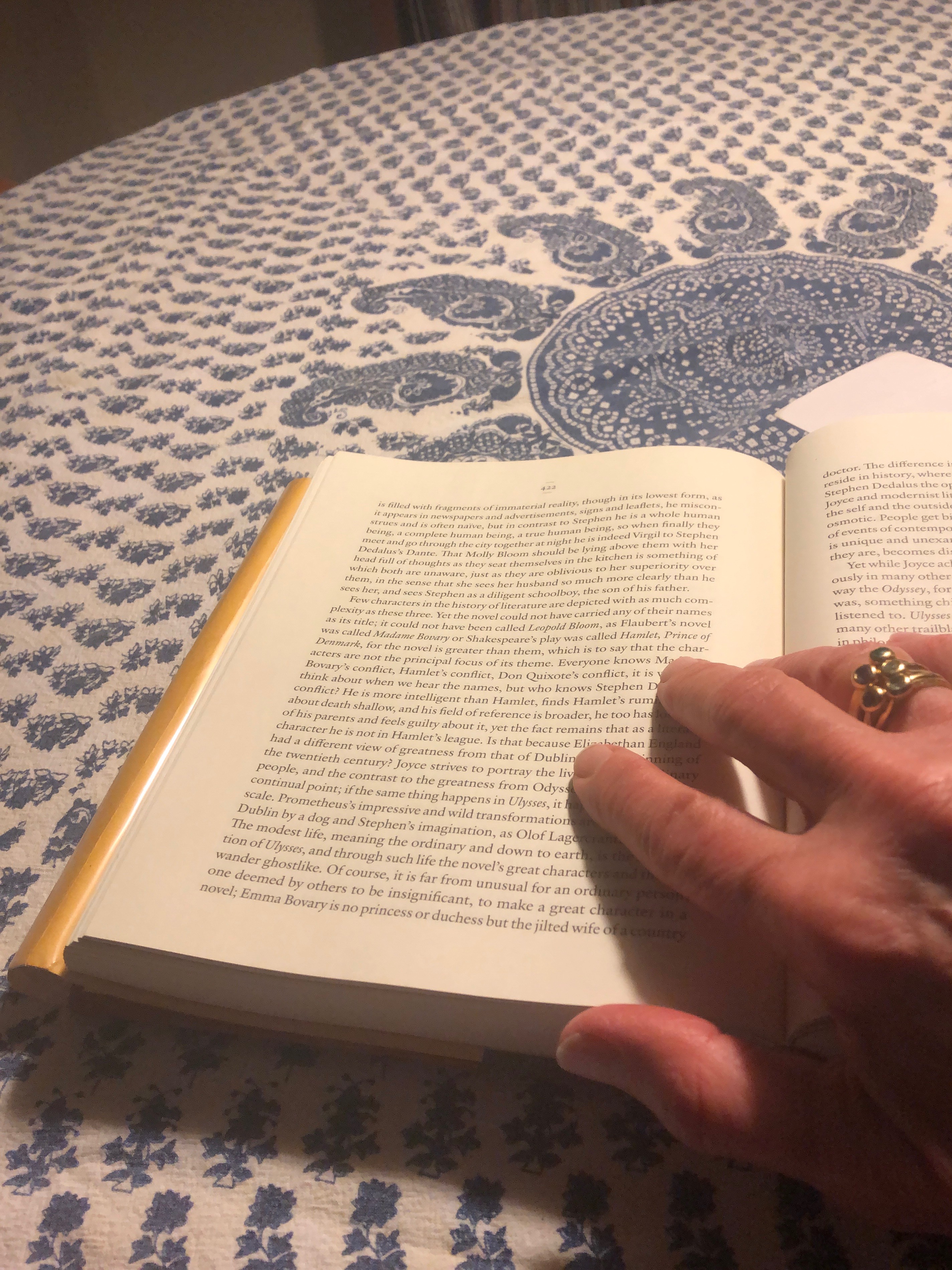
Photo: Alex Bakley via Washington Post and Italy 24.
Herman Cruse is a school bus driver who is a regular volunteer in classes at Middle Township Elementary No. 1 in Cape May Court House, N.J.
I like that every week the Washington Post sends subscribers a collection of upbeat stories it calls “The Optimist.” It’s good to be reminded that there are people doing kind and generous things every day. We just don’t hear about them often.
Today’s story, by Cathy Free. is about a school bus driver who was concerned when a child on his bus was discouraged about reading. It’s about how his decision to help out led to a whole new avocation.
“New Jersey school bus driver Herman Cruse noticed that a kindergartner seemed a little sad and out of sorts during one morning ride to Middle Township Elementary #1.
“ ‘Bus drivers are the eyes and ears of students when they’re away from home,’ said Cruse, 55, who drives students of all ages for Middle Township Public Schools in Cape May Court House, N.J.
“ ‘We have an uncanny gift to discern what kids are feeling,’ he said.
“When Cruse asked the kindergartner what was wrong, he said the boy explained that he wasn’t able to complete his reading assignment because his parents were busy with his four siblings at home. It was hard to find one-on-one time to practice reading with his mom or dad, he told Cruse.
“Cruse said an idea popped into his mind.
‘I told him, “Listen, I have some free time, and if you don’t mind, I’d like to come to the school and read with you,” ‘ he said.
“Cruse received permission from the 6-year-old’s teacher, Alex Bakley, to show up at her kindergarten classroom the following week. When he walked in, he said the boy shouted, ‘Hey, that’s my bus driver!’
“ ‘We went into a quiet corner and began reading together,’ Cruse said. … ‘So he read to me, I read to him and we read together, and from there, it took on a life of its own. … A second student wanted to read to me, then a third. All these kids were going to the teacher asking, “Can I read with Mr. Herman?” ‘
“Almost two years later, Cruse now volunteers to help Bakley’s 18 kindergarten students and another kindergarten class with reading two days a week, and on a third day, he tutors the school’s first- and second-graders. After dropping the kids off at school, of course. …
“Middle Township Elementary Principal Christian Paskalides said every child at the school looks up to Cruse, both on and off the school bus. … ‘Positive adult interactions can sometimes dictate a child’s day, and a bus driver is the first and last adult interaction for most students other than family,’ Paskalides added. ‘This is more than just a job to Herman — he’s a great role model and mentor.’
“Cruse said he’s never wanted to be anything other than a bus driver. … Because he lives in Egg Harbor City, N.J., about 40 miles away, it didn’t make sense for him to drive home after delivering students to high school, middle school and elementary school, he said. … ‘Instead, I’d hang out at the gym, go the library or sit in my car and go to sleep to fill up the time,’ Cruse said.
“It wasn’t until he offered to help the kindergartner on his bus last year that he realized there was something more rewarding he could be doing, he said. Cruse had spent a lot of time reading to his own five children when they were growing up.
“ ‘They’d say, “Dad, how come you read so much?” and I’d say, “Come on over and find out,” ‘ he said. ‘I’d tell them, “The book is always better than the movie.” There’s nothing better than time spent with a good book.’ …
“When Bakley showed him the round table where children would read to him in her classroom, he pulled up a small chair and made himself at home, he said. … He spends about 20 minutes reading books with each child on a rotating basis, and he also challenges them to word games like alphabet bingo.
“LaCotia Ruiz said her son Kingsly, 5, is more excited about books since he started reading with Cruse.
“ ‘Kingsly had a rough time with reading at the beginning of the school year, but he’s doing much better because of this fun one-on-one time,’ Ruiz said. ‘In the morning he wakes up excited and says, “I’m going to read with Mr. Herman!” ‘ she said. …
“ ‘There’s now another bus driver who wants to help me out between his routes,’ [Cruse] said. “What started out as a way to kill time has now blossomed into a way to make a difference in the heart of a child.’ ”
Props to him and props to that first kindergartner, too. I’m going out on a limb here and opine that the little boy sensed he could reveal his problem to this adult and maybe have something good happen. More at the Post, here.








 Photo:
Photo:  Photo: Star Tribune
Photo: Star Tribune




